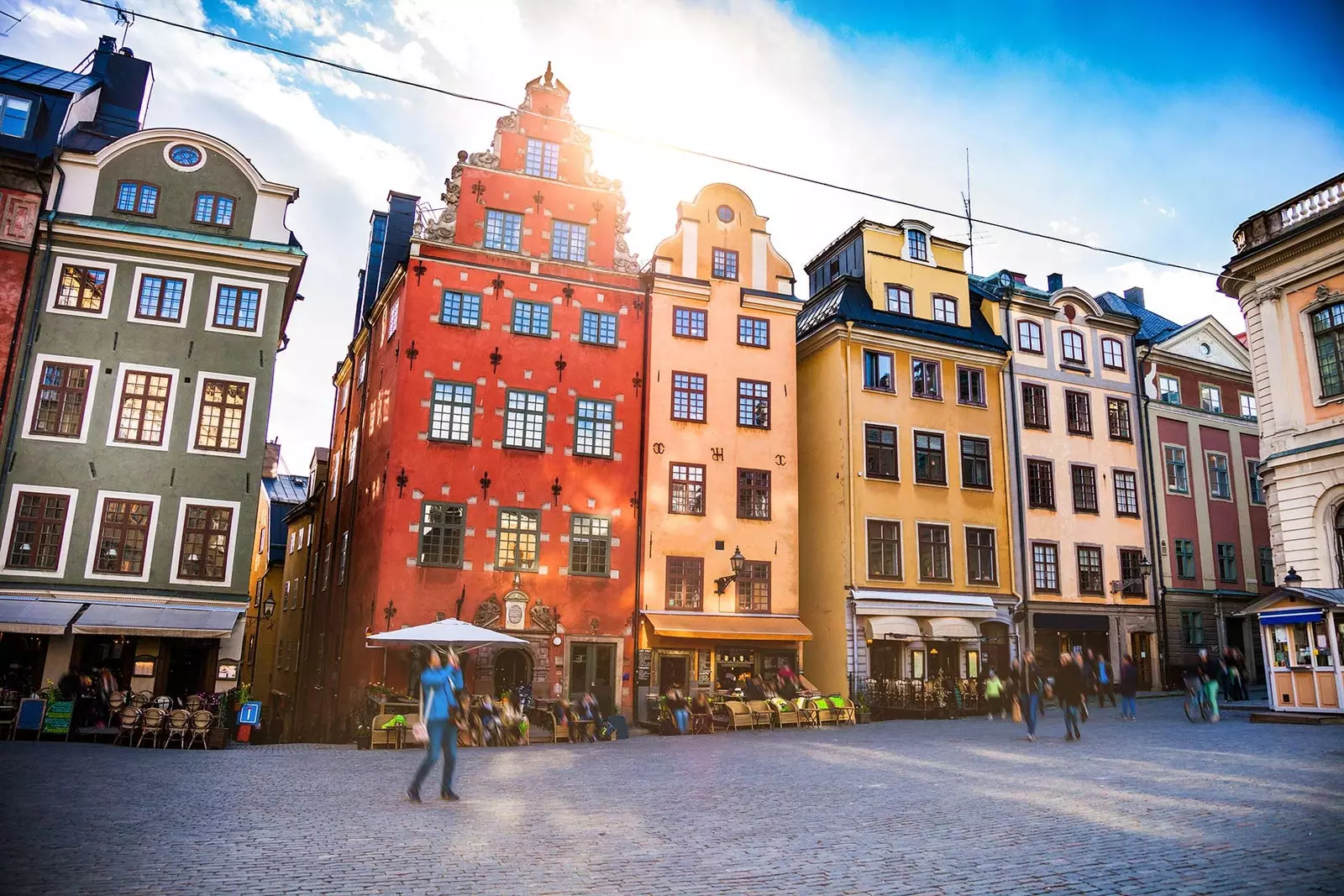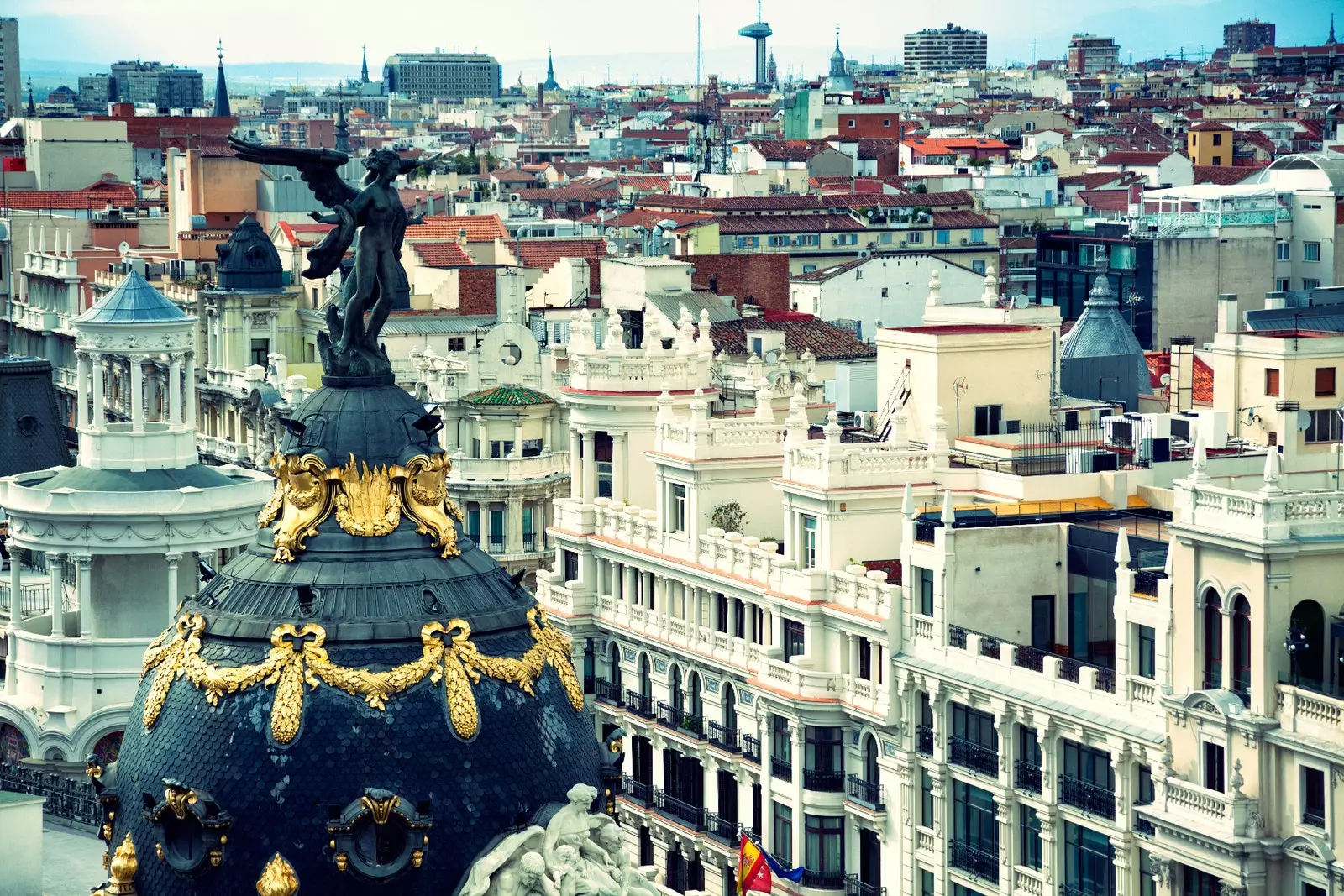“The Chinese Challenge”: so titled The Economist Intelligence Unit (EIU) –the analysis and research division of The Economist Group– its annual Democracy Index report, which offers a snapshot of the state of democracy in 165 independent states and two territories.
The reason for the title? “The Democracy Index 2021 assesses the state of global democracy facing the challenge of China and the covid-19 pandemic ”, they state in the report.
The Democracy Index is based on five categories: electoral process and pluralism, functioning of the government, political participation, political culture and civil liberties.
Taking into account the score obtained in each category, the countries are classified into four types of system: “full democracy”, “defective democracy”, “hybrid regime” or “authoritarian regime”.

Norway, the most democratic country in the world.
The 2021 Democracy Index reveals that “the number of people living in a democracy fell to less than 50%” , so the number of countries classified as "authoritarian regime" increased in 2021. “Only once before, in 2010, after the global financial crisis, a sharp year-on-year drop in the average global score was matched.
As has been the case since 2010, Norway once again occupies the first place in the ranking of world democracy and the Nordic countries they are placed in five of the first six places on the list.
However, we must point out that Western Europe has experienced another drop compared to the previous year and Spain has been downgraded from “full democracy” to “defective democracy”.
THE IMPACT OF THE PANDEMIC
The results of The Economist Intelligence Unit Report reflect the continuing negative impact of the covid-19 pandemic on democracy and freedom worldwide for the second consecutive year.
“The pandemic has meant an unprecedented withdrawal of civil liberties in developed democracies and authoritarian regimes, through the imposition of blockades and travel restrictions and, increasingly, the introduction of green passes to participate in public life”, states the Report.
And he continues: “In many countries, the pandemic has entrenched divisions among those who are in favor of the precautionary principle and expert-driven decision-making and, on the other hand, those who defend a less prescriptive approach”.

New Zealand reaches second place in the ranking of democracy.
THE CHINA CHALLENGE
Why “The China Challenge”? The report attempts to answer the following question: What challenge does China present to democracy, the model of government to which most people in the world have aspired for the last century?
In the report they explain that the power of this political challenge is inextricably linked to the incredible economic success of China in the last three decades: “The Chinese economy has grown at almost three times the rate of the US economy in terms of nominal GDP since 1990, making China the the economic superpower with the second largest GDP in the world”.
Thus, the report states that “ China's leaders cite the pandemic as proof that their political system is superior to the liberal democratic model."
However, the Democracy Index 2021 asks: “Do these claims stand up, and what advantages, if any, does China's system of government confer on its citizens compared to those residing in a democracy?”

Beijing, China.
LESS THAN HALF OF THE WORLD'S POPULATION LIVES IN DEMOCRACY
According to the report, less than half of the world's population (45.7%) lives in a democracy of some kind, a significant decrease from 2020 (49.4%).
Also, only 6.4% reside in a "full democracy" , compared to 8.4% in 2020, and two countries (Chile and Spain) were downgraded to “flawed democracies”.
More than a third of the world's population (37.1%) lives under an authoritarian regime, with a large proportion in China.
According to the 2021 Democracy Index, 74 of the 167 countries and territories covered by the model (44.3% of the total) are considered democracies.
"The number of 'full democracies' fell to 21 in 2021, down from 23 in 2020 and 22 in 2019," the report states. The number of "flawed democracies" increased by one, to 53. Of the remaining 93 countries, 59 are “authoritarian regimes” and 34 are classified as “hybrid regimes”.
Based on the data recorded by this index in recent years, “democracy has not been in solid health and in 2020, its strength was further tested by the pandemic.”

Finland, the third most democratic country.
THE WORST OVERALL SCORE IN THE HISTORY OF THE INDEX
The average global Democracy Index score receives a big hit for the second year in a row and falls from 5.37 in 2020 to 5.28 in 2021. This is the worst score since it was first produced in 2006.
The deterioration of the global score in 2021 was driven by a decrease in the average regional score worldwide, except for Eastern Europe –which still does not have a single “full democracy”, although three countries have gone from “hybrid regimes” to “flawed democracies”–, whose score stagnated at a low level.
“Anyone who thought at the end of 2020 that things couldn't get worse was wrong” , states the Report, and points out that there have been particularly large falls in Latin America (-0.26), North America (-0.22) and Asia and Australasia (-0.16).

Sweden occupies the fourth position on the list.
THE MOST DEMOCRATIC COUNTRIES IN THE WORLD
The first 21 countries on the list, considered as "full democracies" are headed by Norway (with a score of 9.75), followed by New Zealand (9.37) and Finland (9.27).
Completing the top 10: Sweden (in 4th place with a 9.26), Iceland (5th place with a 9.18), Denmark (6th place with a 9.09), Ireland (7th place with a 9), Taiwan (8th place with 8.99) and Australia and Switzerland (which tied for 9th place with 8.90).
The ranking from 11 to 20 is as follows: The Netherlands, Canada, Uruguay, Luxembourg, Germany, South Korea, Japan, the United Kingdom, Mauritius, Austria and Costa Rica –tied for 20th position–.

Iceland is the fifth most democratic country in the world.
SPAIN, FROM FULL TO DEFECTIVE DEMOCRACY
Spain has passed from being a “full democracy” to a “defective democracy” according to the Democracy Index 2021.
Spain gets this year a score of 7.94, showing a deterioration of 0.18 points with respect to the previous year. Said deterioration “is mainly related to a lower score for judicial independence, after ongoing political divisions over the appointment of new magistrates to the General Council of the Judiciary, the body that oversees the judicial system and aims to ensure its independence,” the Report states.
Nowadays, the CGPJ works on an interim basis, as his term expired in 2018 and there has been no agreement on the appointment of new judges (who need a three-fifths majority in parliament).
In more general terms, the Report explains "Spain's political scene has become increasingly unstable in recent years, with increased parliamentary fragmentation, a litany of corruption scandals, and growing regional nationalism in Catalonia posing challenges to governance."

Spain goes from “full democracy” to “defective democracy”.
THE LEAST DEMOCRATIC COUNTRIES IN THE WORLD
At the bottom of the table, we find the countries with authoritarian regimes, the three being the least democratic: North Korea (1.08), myanmar (1.02) and Afghanistan (0.32).
They complete the list of the ten least democratic countries in the world: Democratic Republic of Congo, Central African Republic, Syria, Turkmenistan, Chad, Laos and Equatorial Guinea.
